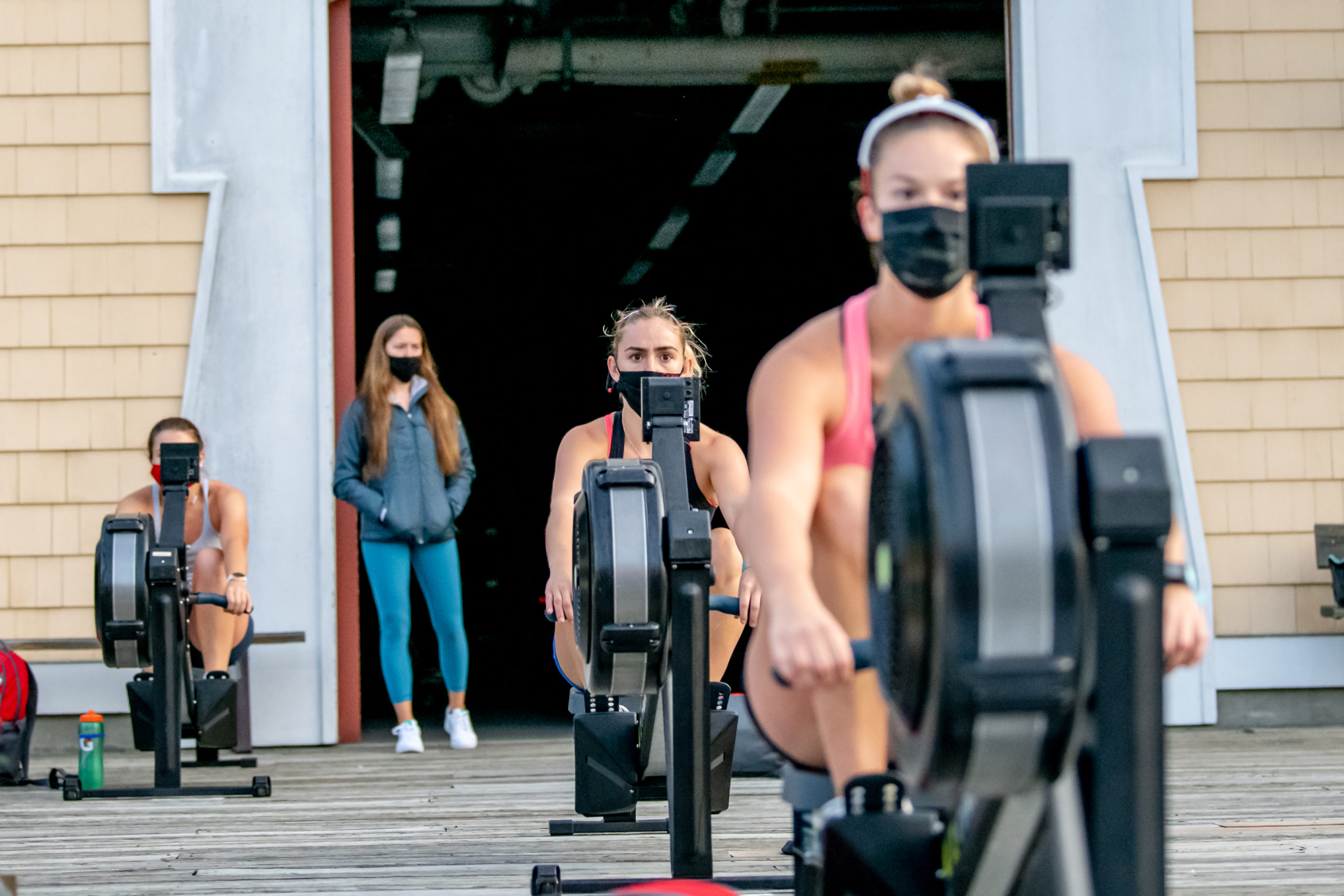BY OLIVIA COFFEY
PHOTO BY ED MORAN
To continue reading…
This article is exclusively for Rowing News subscribers. For as little as $5 a month, you can get access to the best quality, independent reporting on all the issues that matter to the North American rowing community.
Already a subscriber? Login
There are a lot of articles written about how to perform your best on an erg, but there are far fewer about how not to do your worst, and in my experience, the latter notion is far more practical.
When I think back on my rowing career, I can vividly remember almost every PR I’ve ever recorded because they happen so rarely. Bad performances, though, are too plentiful to count. In fact, I’ve had so many tough experiences on the erg, I consider myself something of an expert. I can’t tell you how many times I’ve mis-paced a workout, positive-split an entire piece, or looked into the mirror in the middle of a 2x6K workout and thought to myself, “What have you done?”
It’s true that a lot of things that make you fast on the erg also make you not slow. Sleep, training, and proper nutrition are critical to every erg piece but are perhaps even more important when trying to mitigate underperformance. All these variables are within your control, so utilize them to the best of your ability. Eat as much as you can, drink constantly, recover as much as possible, and be smart with respect to your training.
Even if you do all these things correctly, you still may not find yourself where you want to be at the start of a workout. The best bet in this situation is to be honest with yourself about what’s possible on that day and try to negative-split the piece. If you underestimate your abilities, you can always go faster throughout the piece, but if you start too fast, you’re going to have a bad time. Practice negative-splitting and use rate to help you get faster. The workout provided is perfect for learning how to do just that.
Stay present. When a piece is going poorly, it’s easy to get ahead of yourself and think about getting to the finish line, but that doesn’t allow you to make the most of your situation, even if it’s not going as you had hoped. If your mind starts to wander, start counting. It focuses your attention on what’s attainable in the moment, and each stroke counted will bring you that much closer to the end.
Finally, never quit. It only takes quitting once to realize that this option hurts far worse than fighting each stroke of the piece. Whether or not you get a good score doesn’t diminish the physiological benefit of a workout. Learning how to push when you’re not at your best will help you develop the mental fortitude you need to win races.
8K Erg Workout
- 2K@22 spm, 2K@24 spm, 2K@26 spm, 2K@28 spm
- Increase speed with each shift in rate.

